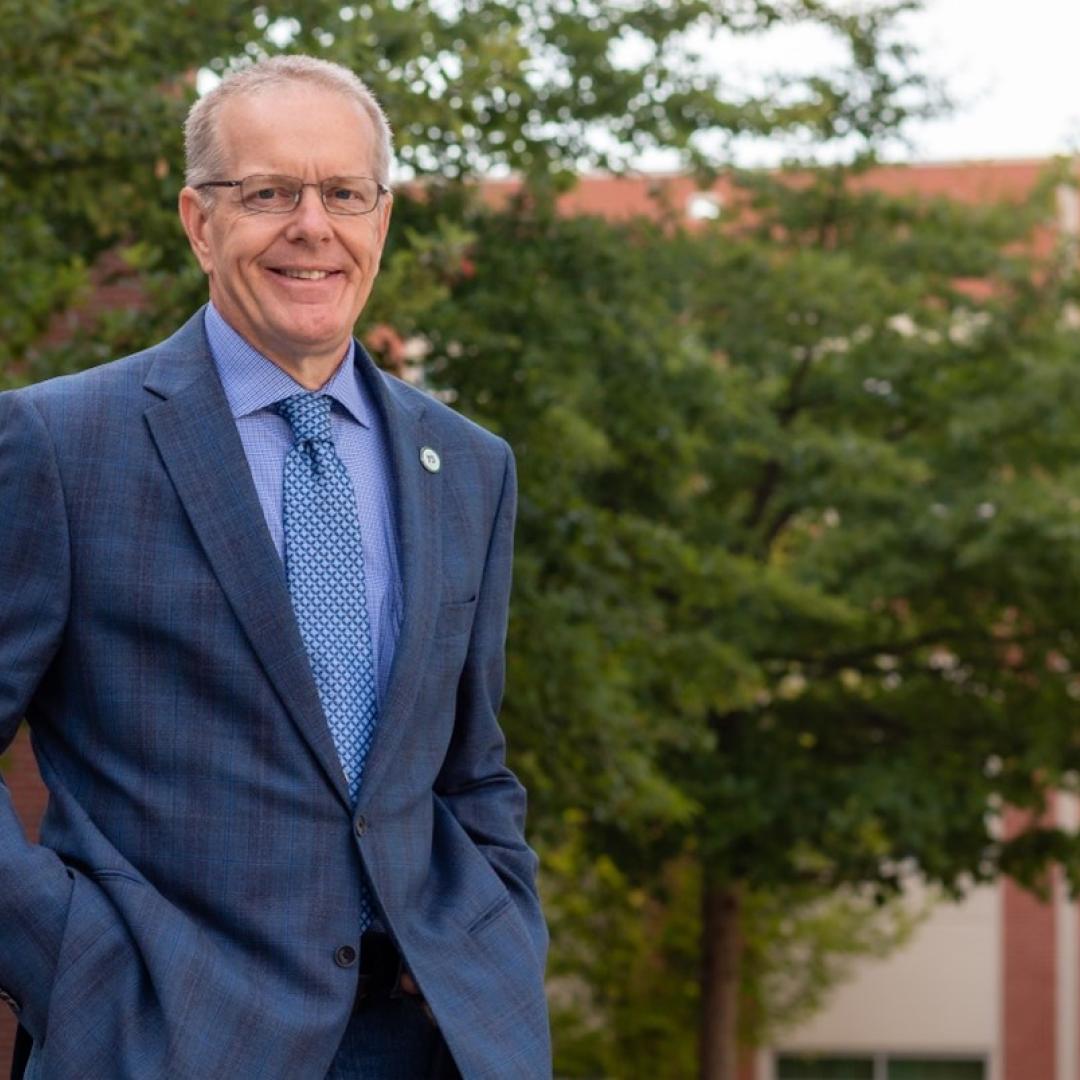
Filter News
Area of Research
- Biological Systems (1)
- Biology and Environment (78)
- Biology and Soft Matter (1)
- Clean Energy (50)
- Climate and Environmental Systems (1)
- Computational Biology (1)
- Fusion and Fission (4)
- Isotopes (3)
- Materials (20)
- Materials for Computing (4)
- National Security (14)
- Neutron Science (10)
- Nuclear Science and Technology (2)
- Quantum information Science (1)
- Supercomputing (34)
News Type
News Topics
- (-) Bioenergy (50)
- (-) Biomedical (28)
- (-) Clean Water (14)
- (-) Composites (6)
- (-) Cybersecurity (14)
- (-) Energy Storage (28)
- (-) Environment (101)
- (-) Frontier (24)
- (-) Polymers (8)
- (-) Transformational Challenge Reactor (3)
- 3-D Printing/Advanced Manufacturing (37)
- Advanced Reactors (8)
- Artificial Intelligence (46)
- Big Data (22)
- Biology (58)
- Biotechnology (11)
- Buildings (18)
- Chemical Sciences (22)
- Climate Change (48)
- Computer Science (82)
- Coronavirus (17)
- Critical Materials (2)
- Decarbonization (45)
- Education (1)
- Emergency (2)
- Exascale Computing (25)
- Fossil Energy (4)
- Fusion (30)
- Grid (23)
- High-Performance Computing (43)
- Hydropower (5)
- Isotopes (27)
- ITER (2)
- Machine Learning (22)
- Materials (41)
- Materials Science (44)
- Mathematics (6)
- Mercury (7)
- Microelectronics (2)
- Microscopy (20)
- Molten Salt (1)
- Nanotechnology (16)
- National Security (35)
- Net Zero (8)
- Neutron Science (47)
- Nuclear Energy (54)
- Partnerships (16)
- Physics (28)
- Quantum Computing (20)
- Quantum Science (30)
- Renewable Energy (1)
- Security (11)
- Simulation (30)
- Software (1)
- Space Exploration (12)
- Summit (30)
- Sustainable Energy (43)
- Transportation (27)
Media Contacts
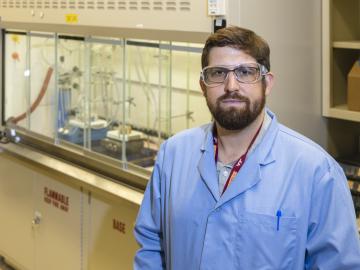
Chemist Jeff Foster is looking for ways to control sequencing in polymers that could result in designer molecules to benefit a variety of industries, including medicine and energy.
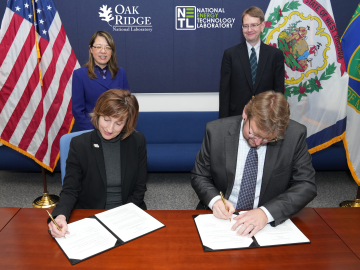
ORNL is teaming with the National Energy Technology Laboratory to jointly explore a range of technology innovations for carbon management and strategies for economic development and sustainable energy transitions in the Appalachian region.
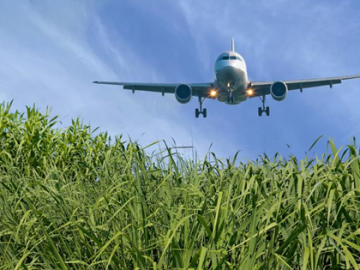
The Center for Bioenergy Innovation has been renewed by the Department of Energy as one of four bioenergy research centers across the nation to advance robust, economical production of plant-based fuels and chemicals.
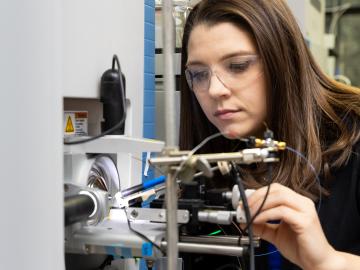
Scientists at ORNL have confirmed that bacteria-killing viruses called bacteriophages deploy a sneaky tactic when targeting their hosts: They use a standard genetic code when invading bacteria, then switch to an alternate code at later stages of
The Autonomous Systems group at ORNL is in high demand as it incorporates remote sensing into projects needing a bird’s-eye perspective.
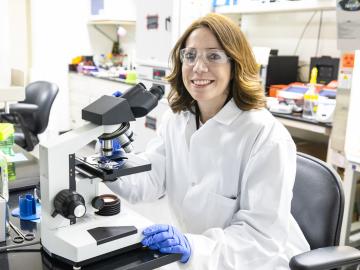
Joanna Tannous has found the perfect organism to study to satisfy her deeply curious nature, her skills in biochemistry and genetics, and a drive to create solutions for a better world. The organism is a poorly understood life form that greatly influences its environment and is unique enough to deserve its own biological kingdom: fungi.
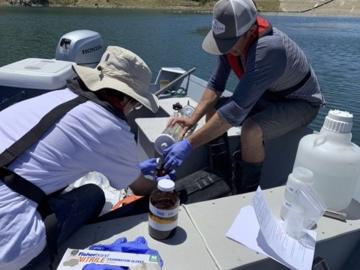
Environmental scientists at ORNL have recently expanded collaborations with minority-serving institutions and historically Black colleges and universities across the nation to broaden the experiences and skills of student scientists while bringing fresh insights to the national lab’s missions.
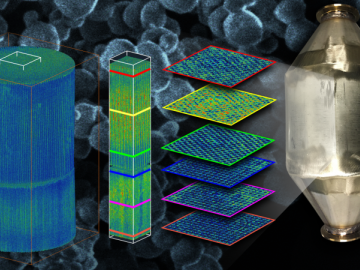
Natural gas furnaces not only heat your home, they also produce a lot of pollution. Even modern high-efficiency condensing furnaces produce significant amounts of corrosive acidic condensation and unhealthy levels of nitrogen oxides
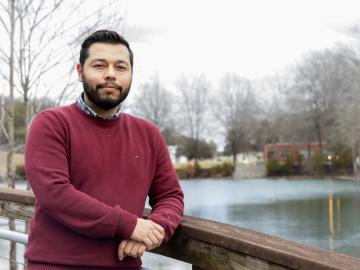
Hydrologist Jesús “Chucho” Gomez-Velez is in the right place at the right time with the right tools and colleagues to explain how the smallest processes within river corridors can have a tremendous impact on large-scale ecosystems.
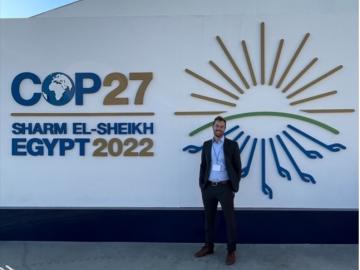
David McCollum, a senior scientist at the ORNL and lead for the lab’s contributions to the Net Zero World Initiative, was one of more than 35,000 attendees in Egypt at the November 2022 Sharm El-Sheikh United Nations Framework Convention on Climate Change, or UNFCCC, Conference of the Parties, also known as COP27.


